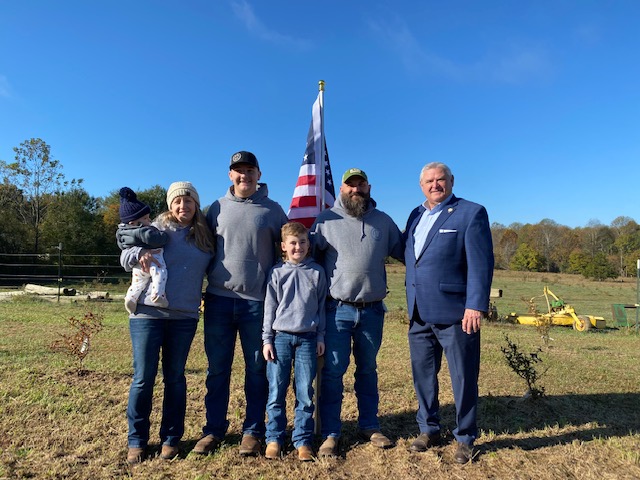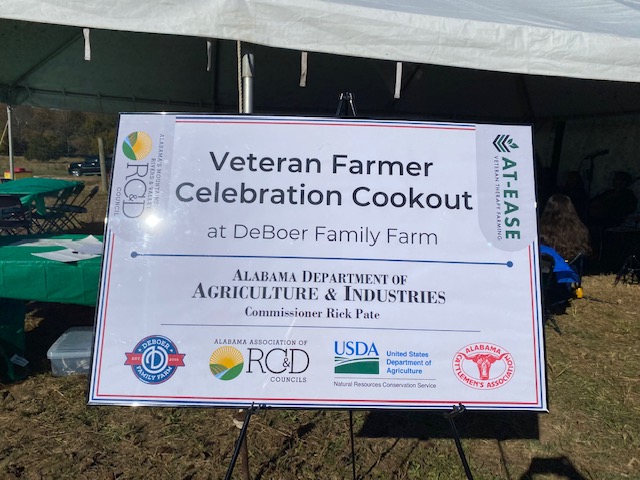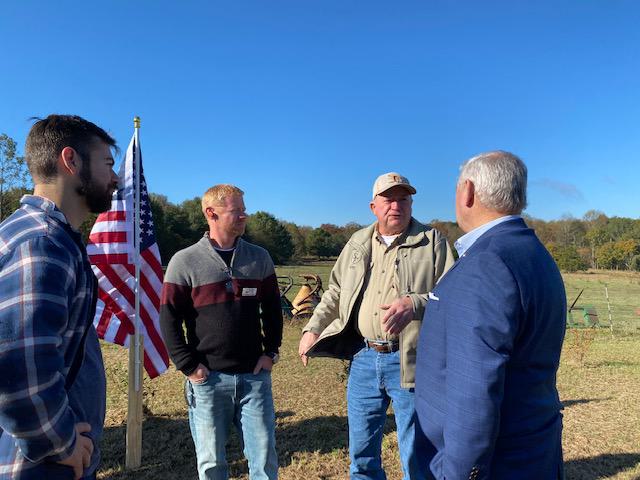By Randy Tatano
You’ve probably never heard of a “therapy farm,” which isn’t a farm in a traditional sense. It doesn’t produce anything that can be eaten or sold. It doesn’t have a planting or harvest season. It doesn’t need rain or sunshine.
A therapy farm’s only crops are pride and self-esteem.
It’s a program being taken statewide by Alabama Commissioner of Agriculture Rick Pate. Called “At-Ease Veteran Therapy Farming,” it matches veterans with local farms; the object is to help vets who might be having a hard time dealing with the residual effects of military service. It gets them outside, doing whatever chores the farmer needs, or simply spending time letting nature conduct its healing process. Fresh air and sunshine can do wonders for a person’s mood, as does creating something with your hands. And the term “at ease” lets veterans know they can relax if they join the program.

Started just a few years ago in the northern part of the state, with funding by the Alabama Research Conservation and Development Council, the program is sort of a mental health approach for veterans using nature as the therapist.
Pate said many veterans, particularly those from the Vietnam era, find the program invigorating. Especially considering the reception vets received returning home from southeast Asia back in the 1960s & 1970s.
“A lot of them struggled when they came back and weren’t really appreciated," Pate said. "Some feel like they’ve been forgotten. So they appreciate someone being interested in them. It’s a sense of pride.”
Alabama farms can sign up to be therapy farms, and, if approved, can receive a grant for between $3,000-$5000 to work with veterans. They can assign tasks… or not. The object is to get the veterans out of the house and moving while making new friends who appreciate them. They might build a fence, get their hands dirty with regular farm duties, ride horses, tend the animals, or simply spend time with the farmers learning about agriculture. The program plants the seeds of self-esteem with veterans while increasing human contact with those who are thankful for their service.
“They’re not being inside or watching TV,” said Pate.
Gregg DeBoer, of Arab, is an Army veteran who got into farming after returning from missions in Iraq and Kosovo.
“I was struggling with life and couldn’t focus,” said DeBoer.
DeBoer was introduced to agriculture through a program called “Operation Grow” and he started with a four-by-four plot, selling his produce at farmer’s markets. That led to him tilling his entire backyard. The operation kept growing. He now has a cattle farm and is paying it forward, training others who are interested, while hosting events that draw dozens of veterans.
The big question he hears is, “How do I get started?”
Many of his trainees have begun their own operations. DeBoer said farming is relaxing and has made him a better person.
“It’s like the old saying, I get lost in the garden to find myself,” DeBoer said.

In some ways, he finds farming is the opposite of the military. In the Army, people are used to taking orders; now he finds that ordering a 1,800-pound bull to move doesn’t always work.
Pate’s goal is to have at least one therapy farm in each county, as right now there are only 13, from Cullman to the north. So, he’s trying to get the word out.
Farms that wish to join the program can apply for an “At-Ease Grant” at the website https://ateasefarming.org which also accepts donations to help support the program. Veterans who want to take part can find a farm on the website’s map.
To connect with the author of this story, or to comment, email news@1819News.com.










